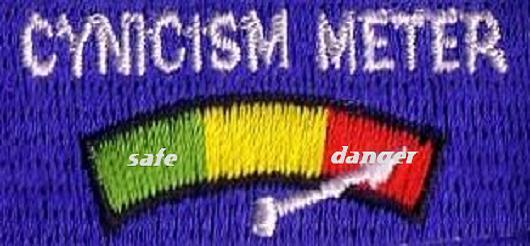
02 Jun Customer experience marketing & cynicism
It seems that most law practices now recognise the primary importance of the customer experience to their appeal and therefore emphasise service attributes on their websites. The problem is that all these claims look or sound the same.
- How many of these numerous claims actually work as marketing messages?
- How many successfully and positively differentiate the offering?
- How many of these claims do you personally believe?
That’s right. We don’t believe the claims – and neither do law practice customers. We’ve all grown cynical and have developed a knee-jerk rejection of the vast majority of these vague claims to offer a superior client experience.
Irony abounds: a chasm often develops between the various claims of an excellent customer experience – and the actual experience of customers. The claims therefore only act to foster disappointment, and actually lead to reduced customer satisfaction and weaker net promoter scores.
The backlash has begun and you may have noticed – since about 2012 – that a number of organisations, including some astute law practices, have pulled back from making customer experience the centrepiece of their marketing campaigns. The most obvious example is the big Australian banks: over the past few years they have stopped their largely undifferentiated claims to offer a superior service, and have subtly fallen back to more traditional product-based features and benefit messaging.
Is it time for law practices to do the same? Lawyers – who are expert cynics – should realise that simple, vague claims in relation to customer experience are only likely to breed cynicism and disappointment.
Going forward, law practices need to:
- Invest more in the experience, less in the marketing of the experience
- Increasingly market a superior client experience through the experience, rather than through mere claims
- Craft better, more specific, more convincing value propositions – then provide some evidence
Don’t make customer experience a part of your marketing message unless you can make your claims convincing or you can back them up with evidence. If clients are going to respond cynically, you might be better off focusing on other messages, such as price, experience or expertise.
Marketing a superior client experience through the experience
Yes – this is really a very old game. It’s about reputation building and referrals. It’s the oldest form of professional services marketing in the world, but it’s an area that has got more sophisticated in recent years and for legal practices, it takes more than just delivering an excellent client experience (which itself is much tougher than most practices realise); it involves:
- communicating value (selling the value), and wherever possible
- being specific in customer communications about the experience value
In an ideal world, delivering excellent client service should be enough – but more often than not it isn’t. Customers don’t see all your hard work, they don’t understand the value of it, and don’t understand why it’s all so complicated and takes so much time. If you want to be appreciated for your efforts, you often have to explain these and educate your customers.
Customers need to recognise where and how they have received superior service (which is certainly not always apparent and obvious in legal services) – and then they need to be able to communicate this to others.
- If customers don’t recognise a superior experience, they’ll be neutral about it: an ‘OK’, a 7 or 8 on net performance scores, a cool or lukewarm referral. They won’t actively promote you to others.
- If customers can’t communicate a specific superior aspect of your service to others, a potential warm and powerful referral will become a weak one.
The above requires an investment in the sales and communication skills of frontline staff, as well as the disciplined but subtle repetition of key messages (referral messages) – from initial engagement to the seeking of customer feedback and subsequent relationship management – that reinforce the specific superior nature of the customer experience.
(The above isn’t easy: there is a fine between communicating value as part of delivering a service and being seen as ‘salesy’.)
Crafting better, more specific, more convincing value propositions
What messages would make the discerning client override their natural cynicism about service claims and start to believe your organisation can deliver? Suggestions include:
Position your experience
- be specific about your customer experience difference.
- do you offer a quick and easy transaction, or a deep, trust-based relationship?
- what customer types will your experience most appeal to?
Define your terms
- what do you mean when you say ‘customer service’?
- explain what you mean by the terms you use
- explain what you understand about customer needs and preferences
Explain how
- how does your organisation deliver an excellent client experience?
- What do you actually do differently from your competitors that creates client value?
Provide proof
- do you have any proof?
- are there any statistics on satisfied clients, client testimonials, professional or business awards to support claims of service excellence?
- can all your stuff justify any organisational claims?
Happy lawyering!



Sorry, the comment form is closed at this time.